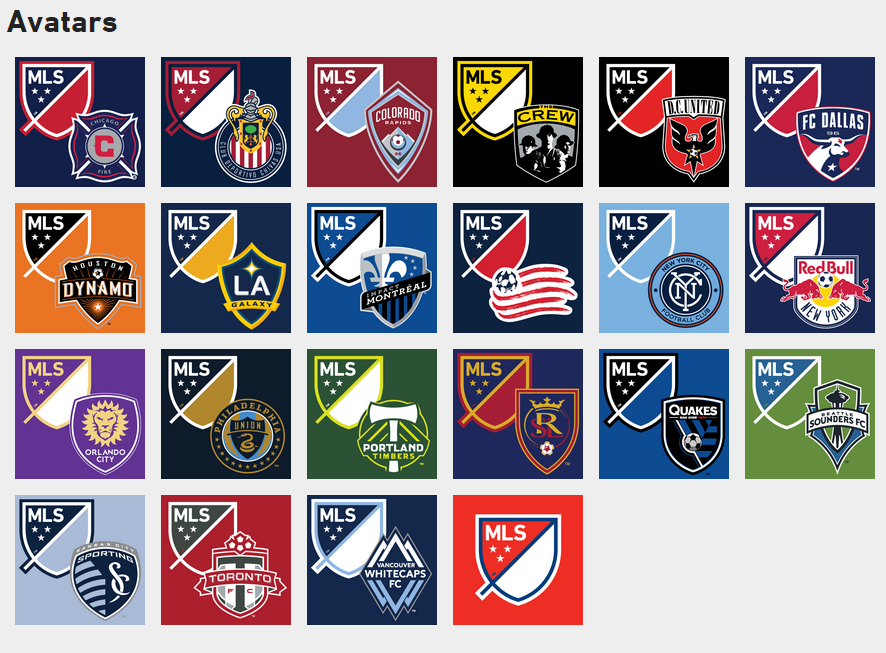MLS stands for Multiple Listing Service. This system aggregates real estate listings from multiple brokers.
A Multiple Listing Service (MLS) is a vital resource in the real estate industry, serving as a comprehensive database for property listings. It enables real estate agents to share information about homes for sale, connecting sellers with potential buyers by providing detailed property descriptions, photographs, and pricing information.
This collaborative tool helps to ensure that properties receive maximum exposure in the market while facilitating easier transactions for realtors. By using an MLS, agents can efficiently search and compare properties, ensuring their clients have access to a wide range of available homes that meet their specific criteria.
🔴What Does Mls Stand for🔴
Table of Contents
The Origins Of Mls
The Origins of MLS trace back to the late 1800s when real estate brokers began sharing information about properties. This cooperative effort helped brokers match buyers with sellers more efficiently. The term MLS stands for Multiple Listing Service. It is a vital tool for real estate transactions. It encompasses a comprehensive database of properties for sale. This allows real estate professionals to collaborate and facilitate property sales.
Tracing The Concept Of Multiple Listing Services
In the early days, brokers shared property listings locally. They met regularly at association offices or exchanged information through mail. This practice set the foundation for modern MLS systems. It ensured all members could benefit from shared listings. Real estate boards maintained these listings. The goal was to foster fairness and cooperation among brokers.
The Evolution From Local Listings To National Systems
With technological advances, local listings evolved. They transitioned from simple bulletin boards and books to digital databases. These changes occurred during the 20th century. They paved the way for broader sharing of property information. The late 20th century saw the rise of computerized systems. These systems extended beyond local real estate markets. Today’s national MLS platforms enable seamless access across different regions. They benefit buyers, sellers, and professionals nationwide.
Mls In Real Estate
MLS stands for Multiple Listing Service, a critical platform in the real estate industry. It brings together comprehensive property listings that realtors and brokers access to connect buyers with sellers. Understanding MLS can empower homebuyers and sellers alike, providing transparency and a plethora of options.
Crucial Tool For Realtors And Brokers
MLS is an indispensable tool that professionals in real estate rely on daily. It serves as a database of property listings unique to specific regions or areas. Realtors and brokers rely on MLS for real-time data on homes for sale, including details like price, features, and availability. This consolidated platform facilitates collaboration among real estate professionals, ensuring they provide the best options for their clients.
- Enables sharing of property details between agents
- Provides accurate and up-to-date market information
- Streamlines the buying and selling process
How Mls Enhances Property Visibility
MLS amplifies the exposure of property listings significantly. When a property is listed on MLS, it gets syndicated across various real estate websites and platforms. This widespread visibility leads to more potential buyers and often results in quicker sales compared to properties not listed on MLS.
| Without MLS | With MLS |
|---|---|
| Limited exposure | Maximized visibility |
| Slower sale process | Quicker transactions |
By utilizing MLS, realtors ensure their listings reach a large audience, which can include fellow real estate professionals and potential buyers actively searching for properties.
Mls Mechanics
MLS stands for Multiple Listing Service, a pivotal tool in the real estate world.
Behind every smooth property transaction, MLS plays a critical role.
Let’s dive into how this system works to connect home buyers, sellers, and professionals.
Understanding The Data Exchange Process
At the core of real estate sales lies data—lots of it, from property details to transaction histories.
The data exchange process goes through several phases:
- Data Collection: Agents list property details on the MLS system.
- Data Standardization: MLS ensures information meets specific criteria for consistency and quality.
- Data Distribution: This standardized data is then shared across the network of members.
With this seamless process, members gain access to comprehensive, up-to-date listings.
Role Of Mls In Facilitating Transactions
The MLS system is not just a database; it’s a facilitator for real estate deals.
Here is how MLS aids in transactions:
- Simplifies Searching: Buyers and agents find properties matching their needs quickly.
- Enhances Visibility: Sellers gain vast exposure, showing their property to a large audience.
- Supports Fair Trading: MLS fosters a cooperative environment, promoting equal opportunity.
Agents and clients both benefit from the efficiency and transparency of MLS.

The Alphabet Soup Of Real Estate
Real estate is full of jargon and acronyms that can seem like a confusing alphabet soup. As buyers, sellers, and industry professionals navigate this world, understanding these terms becomes crucial. One acronym that often comes up is ‘MLS’. Let’s dive into its meaning and examine closely related terms.
Differentiating MLS from Similar Real Estate Jargon
The MLS can often be confused with other real estate terms. To distinguish it, remember that the MLS focuses on listings, while others might refer to:
| Acronym | Meaning |
|---|---|
| HOA | Homeowners’ Association |
| PMI | Private Mortgage Insurance |
| APR | Annual Percentage Rate |
MLD stands out as a collaboration tool among real estate agents, unlike other terms that represent financial aspects or governance structures in properties.
Technological Impact On Mls
MLS stands for Multiple Listing Service. This digital leap has changed how we buy and sell homes. Below, discover the technological strides this system has made.
From Paper Listings To Online Platforms
The journey of MLS from paper to digital is a story of convenience and efficiency. Here’s the transformation:
- Access Anytime: Buyers and agents can find homes 24/7.
- Better Search Filters: Refine your results with clicks, not flips through pages.
- Instant Updates: New listings and changes go live in minutes, not days.
Advancements In Mls Software
MLS systems today are more than a collection of listings:
| Feature | Benefit |
|---|---|
| Integration | Work seamlessly with other real estate tools. |
| Analytics | Know market trends with data-driven insights. |
| Mobile Apps | Manage listings on the move. |
These technologies drive smarter decisions and smoother transactions in real estate.

Mls Access And Membership
MLS Access and Membership unlocks a world of real estate possibilities.
MLS, or Multiple Listing Service, is a database of property listings.
Real estate professionals use MLS for the most accurate and up-to-date information.
Let’s dive into how you can gain access and the perks of being a member.
Exploring The Criteria For Access
Gaining entry into the MLS isn’t as simple as signing up.
It demands specific qualifications.
Below are the key steps to gain access:
- License: Hold a valid real estate license.
- Association Membership: Join a local real estate board.
- MLS Fees: Pay the necessary subscription fees.
- Orientation: Complete any required training sessions.
- Rules Agreement: Adhere to MLS’s regulations and policies.
The Benefits Of Being An Mls Member
Membership in MLS presents vast advantages for real estate professionals.
An MLS member enjoys improved market reach and toolkits that aid in success.
| Benefit | Description |
|---|---|
| Comprehensive Data | Access real-time listings, history, and market analytics. |
| Wide Exposure | List properties to a broad network of agents and buyers. |
| Collaboration Opportunities | Connect with professionals for sales, insights, and partnerships. |
| Updated Technology | Use advanced tools for marketing, communication, and analysis. |
The Economics Of Mls
The Economics of MLS, or Multiple Listing Service, play a vital role in the housing industry. MLS systems are the backbone for real estate transactions, connecting sellers to buyers. They drive the market by providing crucial information.
Mls And Its Influence On Real Estate Markets
MLS systems shape real estate markets by offering a centralized list of properties for sale. This list helps:
- Agents find homes for buyers.
- Sellers reach a wider audience.
- Appraisers to value properties accurately.
Through MLS, data on market prices, trends, and transaction times become transparent. This leads to fair market values and offers efficient transactions for all parties.
Costs Associated With Mls Services
There are various costs linked to using MLS services. These are critical for keeping the system functional and up-to-date. Costs include:
| Cost Type | Description |
|---|---|
| Subscription Fees | Monthly or annual charges for access to MLS listings. |
| Listing Fees | Fees charged to sellers to list their properties on the MLS. |
| Transaction Fees | Costs incurred during the sale or purchase of properties. |
Despite these costs, the benefits of MLS make it a valuable tool. It provides extensive reach and industry standards for real estate professionals.
Emerging Challenges And Mls
The real estate industry is constantly evolving, and so is the Multiple Listing Service (MLS). Technological advancements bring both opportunities and challenges to the MLS system. In this landscape, it’s crucial to address the emerging challenges that affect how MLS operates today and in the future.
Privacy And Data Security In Mls
In a world where data breaches are on the rise, MLS platforms must prioritize user privacy and data protection. Personal information and sensitive data are part of everyday transactions and listings. This raises significant concerns:
- Unauthorized access to private client information.
- Risks of hacking and phishing attacks on MLS databases.
- Need for robust encryption and security protocols.
MLS systems must ensure that both agents and clients can trust the security of their data. It requires:
- Continual updates to security software.
- Strict data access policies.
- Regular security training for users.
The Future Of Mls In The Digital Age
The digital age is transforming MLS into a more dynamic and accessible platform. Agents, buyers, and sellers expect up-to-date, user-friendly interfaces. They need:
- Real-time listings updates for the latest information.
- Mobile-friendly designs for access on the go.
- Integration with emerging technologies like VR home tours.
This shift requires MLS to stay ahead of tech trends. Innovations such as artificial intelligence and blockchain can revolutionize the way MLS works. They contribute to:
- Improved accuracy in property listings.
- Streamlined transactions with smart contracts.
- Predictive analytics to guide market decisions.
The MLS must adapt continuously to remain relevant and effective in the rapidly changing digital landscape. Stakeholders expect progress and innovation to meet their evolving needs.
/cdn.vox-cdn.com/uploads/chorus_image/image/38944152/MLS_crest_breakdown.0.png)
Frequently Asked Questions Of What Does MLS Stand For
What is MLS in Real Estate?
MLS stands for Multiple Listing Service. It’s a comprehensive database established by cooperating real estate agents to provide detailed information about properties for sale. It’s a valuable tool for both agents and buyers to access current listings.
How Does an MLS Work?
An MLS is used to share property information amongst real estate professionals. Agents list properties, including key details, and share commissions. This collective database improves market transparency and helps facilitate property sales by widening exposure.
Who Can access MLS Listings?
MLS listings are primarily accessible by licensed real estate agents and brokers. However, some MLS data may be available to the public via third-party websites, but with limited information compared to what professionals can see.
Are MLS and Realtor.com the same?
No, MLS and Realtor. com are not the same. Realtor. com is a real estate listing website that gathers data from multiple MLSs. It’s accessible to the public, providing a wide range of property listings for potential buyers and sellers.
Conclusion
Understanding MLS is pivotal for anyone involved in real estate. It stands as a cornerstone in property buying and selling, offering a robust database for agents and clients alike. Embracing its full potential can transform your property journey. Dive into the MLS; your key to unlocking real estate success awaits.
 Cric Enjoy Sports News, Cricket Update, Live Streaming
Cric Enjoy Sports News, Cricket Update, Live Streaming






